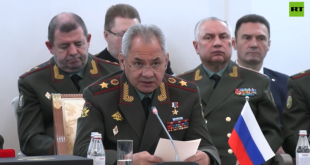
A young girl with blue hair whose stage image balances hypersexualization with an almost childlike innocence has sung songs about anime, school love, and women’s emancipation for several years. Throughout this time, she remained a niche performer. At the end of last year, however, the fighting in Ukraine coupled with a shy declaration of love, expressed for her songs by the fighters of the Russian army, brought her nationwide fame.
By this time Russia’s music scene had undergone major changes as it adapted to wartime demands. Over the past several months, many performers of patriotic and wartime songs have received the kind of public acclaim which normally would have taken years to achieve.
However, there’s a notable difference between these heroes of the new generation. The music of the singers who are currently popular at the front (like the blue-haired girl) is rarely broadcast on radio and television, while the songs of regular pop artists are seldom played in the trenches. Such is the rule, but it comes with certain exceptions.
SHAMAN – the most recognizable voice of the wartime
Pop singer Shaman came closest to being named the “main voice of the Special Military Operation” (SMO). According to polls conducted by the Russian Public Opinion Research Center, he was Russia’s second most popular singer in 2022, yielding first place only to another “voice of the wartime” – the much older Oleg Gazmanov. On Channel One Russia (the country’s largest federal channel), one of Shaman’s main hits, the song “I am Russian”, immediately followed President Putin’s New Year’s address. In fact, it was the first song to open 2023. Last September, Shaman performed the Russian national anthem, sharing the stage with President Vladimir Putin during a celebration honoring the four former Ukrainian regions that joined the Russian Federation.
Prior to February 2022, Yaroslav Dronov (the singer’s real name) was best known as a participant of the talent shows “Factor A” and “The Voice” – Russian analogues of X Factor and American Idol. Dronov does not like talking about these projects and says he took part in them only to “raise the price tag” on his own performances. In an interview, he noted that great artists are rare on such shows because in order to be successful, you need to write your own songs instead of performing cover versions. Dronov says that he is an exception that merely “confirms the rule”.
The main difference between Shaman and other patriotic singers is that he became famous through the Internet. Shaman insists that he achieved success without any radio or TV promotion, and first became popular in the summer of 2021 when the romantic song “Fly Away” went viral on TikTok. The singer regularly checks the view counts on his videos and keeps in touch with his audience on social media.
Shaman’s stage image is a mix of several styles. On the one hand, he has a certain folk aesthetic – for example, vocal techniques characteristic of ethnic music and the large cross that he wears around his neck. On the other hand, Shaman borrows a lot from late 20th century Western rock and pop music – for example, he usually performs in black leather clothes. This mix of styles is evident in the music video “I am Russian” where the action starts in the rye fields and quickly shifts to a rock concert.
The song that brought Dronov real fame was the single “Rise up,” released on February 23, 2022, a day before the start of the offensive in Ukraine. In the description of the video, Dronov said, “I wrote this song recently and quite unexpectedly! It’s like someone dictated it to me from above.” He says that “Rise Up” is dedicated to the memory of Soviet soldiers who died during World War II. But in light of the battles in Ukraine, it has acquired special meaning. Listeners draw parallels between the military conflicts of the past and present and compare modern fighters with the soldiers of the Red Army. “Rise Up” has become one of the songs played during sodliers’ funerals. People say that it “expresses the common feeling of the people and unites everyone”.
In the summer of 2022, Shaman released his biggest hit, “I am Russian”, where he sings about how lucky he is to be Russian. In an interview, Dronov says that “Russian” is not an ethnicity or nationality, but a “state of the soul”. For example, the music video shows his song being enjoyed not only by Russian fans, but also by black people “somewhere in America” and even by aliens.
The song “I am Russian” did not receive unanimous approval, however. In February, a listener filed a police report demanding an investigation into whether the lyrics are xenophobic. Dronov defended his work, claiming his song “is known, loved, and sung by representatives of completely different nationalities”. Eventually, the investigation found no violation of the law.
Dronov has regularly performed at state events and continues to sing “patriotic pop” (“I am Russian”, “My Russia”, “The Russian Anthem”, “A truly Russian hit” are some of his last singles). However, he has also been criticized for allegedly not paying due attention to the needs of the military operation. One of Russia’s biggest radio stations stopped playing Shaman’s songs after he refused to visit Donbass (the musician says that he already had concerts planned for the proposed dates). Eventually, in January 2023, the performer gave charity concerts in Lugansk and Mariupol and met with servicemen.
Akim Apachev – a Mariupol rapper who wrote the famous military anthem
Among other so-called wartime musical celebrity is the Mariupol rapper Akim Apachev (Gasanov). Until 2022, he worked as a military correspondent in Donbass and Syria. His songs written before the offensive in Ukraine explore the life of Russian mercenaries in Syria. His most famous song is “Summer and crossbows”, which is very popular among Russian PMC fighters.
Unlike most performers, Gasanov sings both in Russian and Ukrainian. He believes that the Ukrainian language should once again become a part of the “big Russian world”. For example, in his Ukrainian song “Plive Kacha”, written after the capture of Azovstal, he declares that he is “taking back the ‘mova’” (Ukrainian language – RT) from the current Ukrainian government. Gasanov believes that his position resonates with the official stance. “…Our Commander-in-Chief (President Vladimir Putin) says that Ukrainians and Russians are one people and we have a civil war going on. This means that the Ukrainian language is not our enemy. Our enemy is the idea we are fighting with.”
At the end of 2022, Gasanov released “They are gone” – his own version of the song by the Chechen bard Timur Mutsuraev who fought against Moscow during the two Russian-Chechen wars. Mutsuraev’s song is dedicated to perished Wahhabis and has been banned as extremist in Russia since 2013. However, Gasanov believes that he won’t have any problems with the law and insists that he wrote the song in memory of his deceased friends from Donetsk, where people have been listening to Mutsuraev’s song since 2014. In April 2023, it was played in Moscow at the funeral of the military blogger Vladlen Tatarsky, who was killed in a terrorist attack.
Gasanov’s activism has spread beyond music. He considers the “purification” of the Russian cultural industry to be his mission and believes that before fighting the ideology of the “new Ukrainian terrorist state” it is necessary to “clean things up at home”. In the music video “We”, Gasanov and his friends compare themselves to the oprichniki – Tsar Ivan the Terrible’s bodyguards who were known for their cruelty towards the enemies of the Russian ruler. Among those who participated in the video were the aforementioned military blogger Vladlen Tatarsky, killed by a bomb attack in St. Petersburg, and the actor Ivan Okhlobystin who stood on Red Square and shouted “Goida!” – an interjection denoting an immediate call to action, which Okhlobystin says is mistakenly attributed to the oprichniki.
Gasanov urged officials to cancel the Moscow concerts of rappers Jah Khalib and Loqiemean who spoke out against the Russian authorities in February 2022. He also requested the Prosecutor General’s Office and the Ministry of Culture to check the performers on suspicion of “discrediting the Armed Forces of the Russian Federation”. As a result, both rappers’ concerts were canceled. Gasanov, however, did not plan to stop at that– most recently, he proposed a register of artists who do not support the military actions in order to prevent them from monetizing their work.
The national patriotic music scene
Shaman and Akim Apachev stand out against the general background of Russia’s pop music scene. Shaman became famous online, while Akim Apachev is more popular in Donbass than the rest of Russia. However, most Russian pop singers who perform at state events have gained popularity through TV and radio and are focused on middle-aged to older audiences.
In general, Russia’s “patriotic” music scene is made up of artists with close ties to the Kremlin, who have been performing at state concerts for years. Many of them (like Grigory Leps and Polina Gagarina) were close to Vladimir Putin during the 2018 presidential election.
An important theme that runs through Russia’s patriotic pop music is not so much the fight against the direct enemy (i.e., Ukraine) as against the “collective West”, as President Putin puts it. For example, in his song “Sarmatushka” (an affectionate name of the Sarmat nuclear armed intercontinental missile complex), the singer and State Duma deputy Denis Maydanov warns NATO, The United States, and the Bandera “folks” about a potential nuclear strike from Russia.
This opposition to the “collective West” also comes across in songs about everyday life. For example, the song by Alexander Marshal and Oleg Gazmanov says that the Soviet “Motherland” “didn’t feed us with truffle and parmesan” but “there were books”. In other words, the authors imply that even though the USSR did not provide material comfort, it inspired spiritual growth.
Nostalgia for the USSR is another vital element in Russia’s “official” pop music. One poignant nostalgic symbol is the “babushka [grandmother] with the red flag” – the Ukrainian woman Anna Ivanova, who came out to meet the Ukrainian military carrying a Soviet flag. Her image is used in Marshal and Gazmanov’s music video as a personification of the Soviet “Motherland”. Maydanov too promises to protect the elderly woman from the enemy. As his song goes, “Ready to fight is our Sarmatushka / Believe us, red flag-bearing babushka!”
In May 2022, a group of artists proposed to create the “Russian Music Association”. As noted by popular singer and chairman of the association Nikolay Baskov, the purpose of the association is to fight the “cancellation” of Russian culture in the West and support talented young people in Russia. Oleg Gazmanov also mentioned another goal: “Look at all this glamor that has spread in Russia! And the people are looking at it now! We need to change something. We need to preserve our Russian culture, and not just keep singing Western songs. We will always be worse [in that respect]. We have a great need of uplifting songs.”
What music do soldiers listen to at the front?
On the front line, the above-mentioned performers have a mixed reputation. Akim Apachev’s tracks are quite popular, Shaman’s songs get more of a mixed reaction (most of his fans are middle-aged women), while the singers who regularly appear on federal television aren’t popular at all. According to a serviceman from St. Petersburg, soldiers at the front prefer other music. “Gazmanov? You’re the ones listening to him on TV. We’d prefer pop girls. It’s like in prison – you don’t listen to lyrical songs. Or if you have a choice between field ration and normal food, you won’t eat field ration.” Most servicemen are interested in the same kinds of music as civilians their age – younger soldiers listen to viral tracks on TikTok, older ones listen to the songs of their youth.
Sometimes, however, you get to hear something completely unexpected on the front line. For example, in a video that Channel One military correspondent Dmitry Kulko posted on his telegram channel, Russian fighters asked singer Maybe Baby to “give a concert at the front”.
At the end of last year, a sincere appeal by masked soldiers went viral on Russian media. “Support is very important for our fighters, who are real, flesh-and-blood people. There is one performer who is very popular at the front — Maybe Baby. If she comes here and gives a concert, it would make everyone very happy and grateful. We are waiting for Maybe Baby’s concert at the front!”.
Most surprisingly, Maybe Baby does not sing any patriotic or brutal war songs. The 27-year-old performer with blue hair is a former member of the band Friendzone, and sings about teenage problems and the emancipation of women. Her stage image is largely inspired by K-pop and anime, and she characterizes her work as “mostly songs for girls”. Among SMO supporters, the songs “Superporosenok” (Super Pig) and “Pohryukay” (Grunt) have become particularly popular, since they can be interpreted as hints at common insults against Ukrainians and other military memes (“I have plans for the summer – to fly like a rocket into the sky”). In the comments to her videos, hundreds of fans expressed gratitude on behalf of the soldiers of the Russian army and invited the singer to perform at the front. Currently, Maybe Baby has turned comments off, however.
The past year has demonstrated that Russia’s popular music hasn’t undergone a radical transformation. Some new regional figures have emerged, such as the rapper Akim Apachev, but most of the popular performers sing the same repertoire as they used to, sprinkled with a few patriotic songs. The only exception is the singer Shaman, who has acquired a whole army of devoted middle-aged fans in a short period of time and moved ahead of his more experienced peers.
By Timofey Konstantinov, Moscow-based journalist
© 2023, paradox. All rights reserved.





